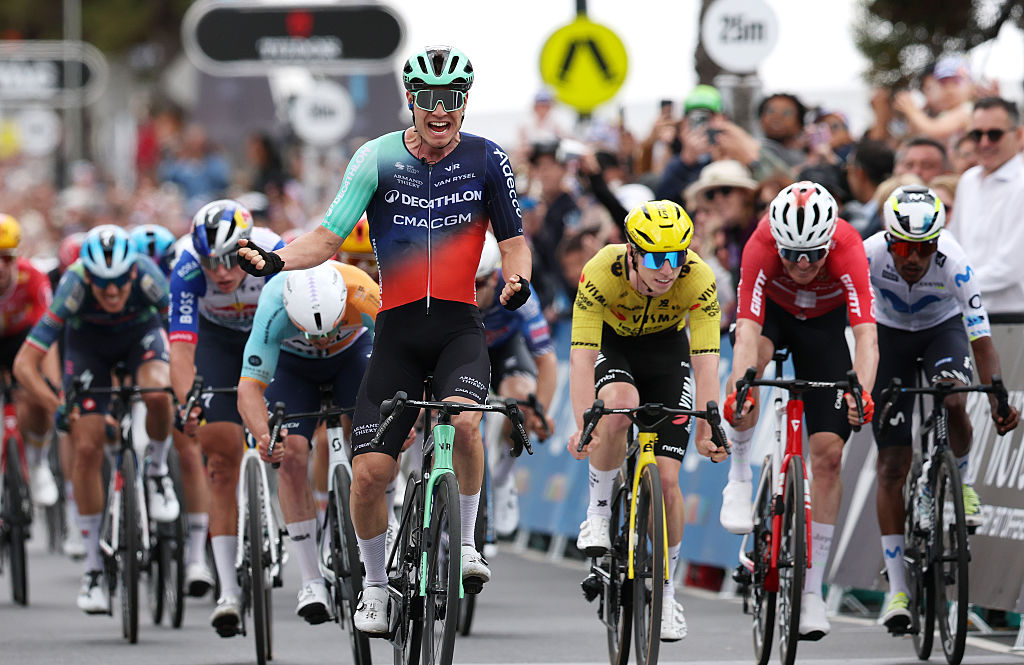Marianne Vos: I've been lucky not to have suffered abuse
Dutchwoman on cycling's 'MeToo' moment, the progress of women's cycling, and her journey back to the top of her game
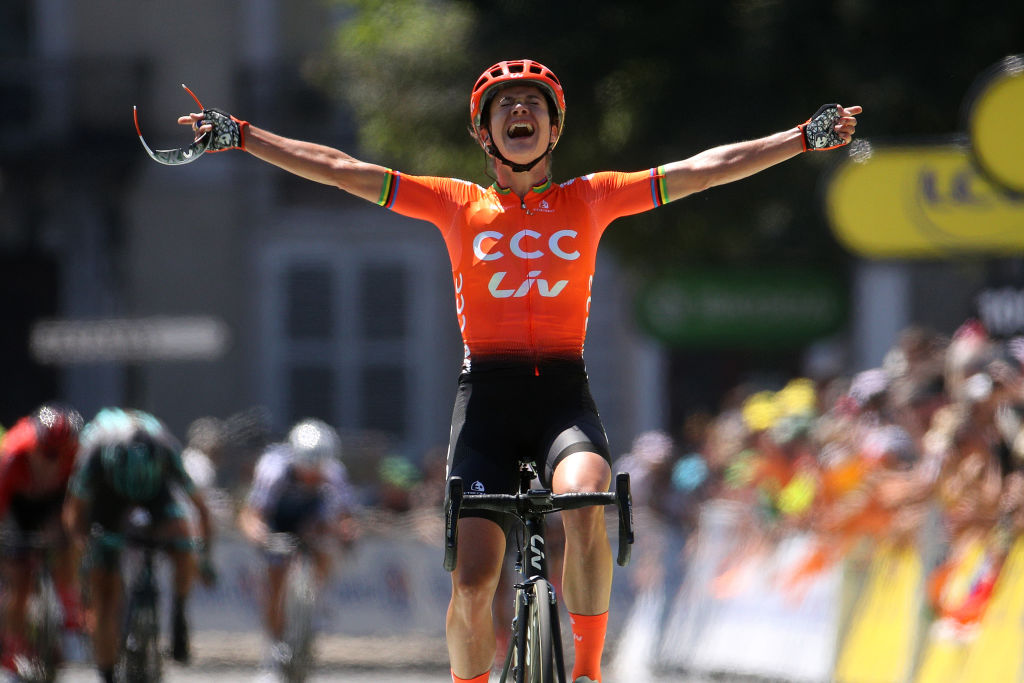
Marianne Vos sits unassumingly at a cycling exhibition in Melbourne, Australia, listening to a Q&A featuring Carlos Sastre and Stuart O'Grady. Earlier that evening, the 32-year-old had been centre stage herself at the inaugural Rouleur show, and earlier that day she had helped pack goodie bags for the event.
It was a gesture normally unheard of among athletes of her rank. Champions aren't always good human beings and good human beings don't always make for champions. Marianne Vos is the exception.
The first thing you notice about the highly decorated CCC Liv all-rounder is how humble she really is, but the Dutchwoman also, without a doubt, thinks and performs as a pure racer. Her 2019 season, which featured a staggering 22 victories, including La Course and four stages of the Giro d'Italia, attests to that. They call her 'The Cannibal' for a reason.
Vos' 2019 campaign was the culmination of a steady comeback from a 2015 season in which she was more or less sidelined from racing as a result of fatigue and over-training.
"It has been a fantastic season, especially if you look at the previous years," Vos tells Cyclingnews in Melbourne.
"In 2018, towards the end of the season, I was getting to the shape I was working towards. I really felt I was getting close and that I might be able, if I continued in that way [in 2019], to feel like my old self and perform well.
"When it turned out well, everything came together - four stage wins in the Giro and maybe the most memorable might be La Course - but, looking back on the whole season, it has been very, very, very satisfying."
The latest race content, interviews, features, reviews and expert buying guides, direct to your inbox!
Vos' return to not only the top of her game but the top of women's cycling is especially impressive when you consider the emphasis that has recently been placed on mental health in professional sport. As cycling has become more competitive, riders have found it more difficult - mentally as well as physically - to reintegrate into the 'bubble' after a time-out.
Vos admits the reprisal of her "old self" had its challenges but her unequivocal "passion for cycling" meant retirement was not an option.
"I had the confidence that it was still there but at moments it was such a thin, or small, light at the end of a really dark tunnel," she says
"You think, 'I don't know if I'm still going to get there', because, especially after overtraining, recovery was such a difficult thing. I could push myself but I just didn't recover. To be able to build, you need to be able to get the hours in to do the training, to be able to race at the highest level and then improve.
"Patience has been very important but most of all the love for the sport because I just wanted to stay around and I wanted to... not prove anything to anybody, because I don't really have the feeling I have to prove something, but I didn't want to end my career being over-trained. I wanted to end my career on the top of my game, so that was the reason for me."
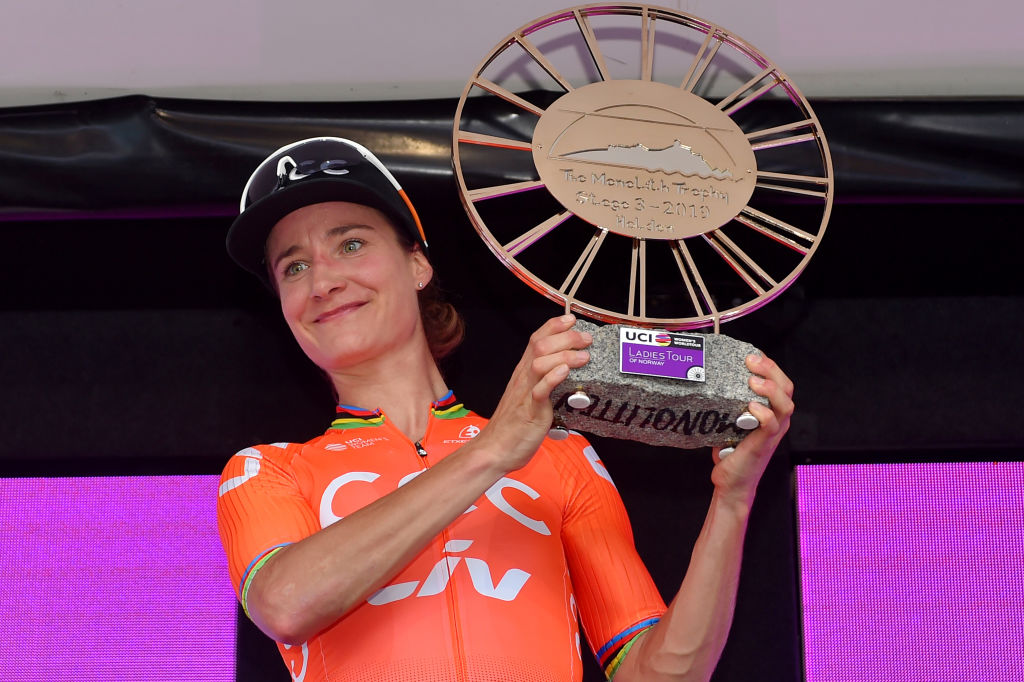
Vos speaks out about abuse in cycling
Vos doesn't shy away from sensitive topics, including a recent #MeToo inspired report into instances of sexual assault in the women's peloton.
The three-time Giro d'Italia champion and 25-time stage winner says her experience in cycling has always been safe and positive. However, the Rouleur investigation where women revealed horrifying incidents of assault and harassment involving team staff wasn't breaking news to her.
"I don't have a feeling that it has been a problem for everybody, all the time, all over, but, as it hasn't been the most professional environment for everybody, I think there have been issues, and of course not only at the highest levels," she says.
"It shouldn't be the case in any of the levels - not for the young riders, not for club riders, not for elite riders - but you always have these people around who use their position in the wrong way. Hopefully speaking about it will help."
Vos says she has been "lucky" not to have fallen victim to abuse over the course of her career.
"I haven't really had those bad experiences so I can't really speak about it myself. I've been in very good, supportive teams but I started in a small team so it doesn't really say it needs to be the big money, the best structure.
"I've probably just been lucky with the good people that really were there for the riders and just supporting them."
Vos also has an informed opinion on long-standing issues in women's cycling, such as wages and the advent of a women's Tour de France, having been involved in discussions that gave rise to La Course.
The UCI has introduced a minimum wage to women's cycling in 2020 in the fight, nearly four years after Australian professional Tiffany Cromwell estimated Lizzie Deignan, world champion at the time, was "not even on 10 per cent" of the salary of rainbow jersey counterpart Peter Sagan.
Vos believes the sport is generally heading in the right direction but placed an emphasis on process.
"It has grown, it's evolving and I think some parts are definitely growing really fast and some parts are not really keeping on track," she says.
"But, in general, I think it grows with the speed it should grow because if you miss steps, the teams or the riders, or the UCI, or fans, or sponsors, might not be able to keep up. It all needs to grow steadily - not slowly, but step-by-step. I think it's heading in the right direction. Probably in the more traditional cycling countries, it's harder to grow and I see, like in Australia, but also Great Britain, the Anglo-Saxon countries, are much further ahead than the traditional cycling countries."
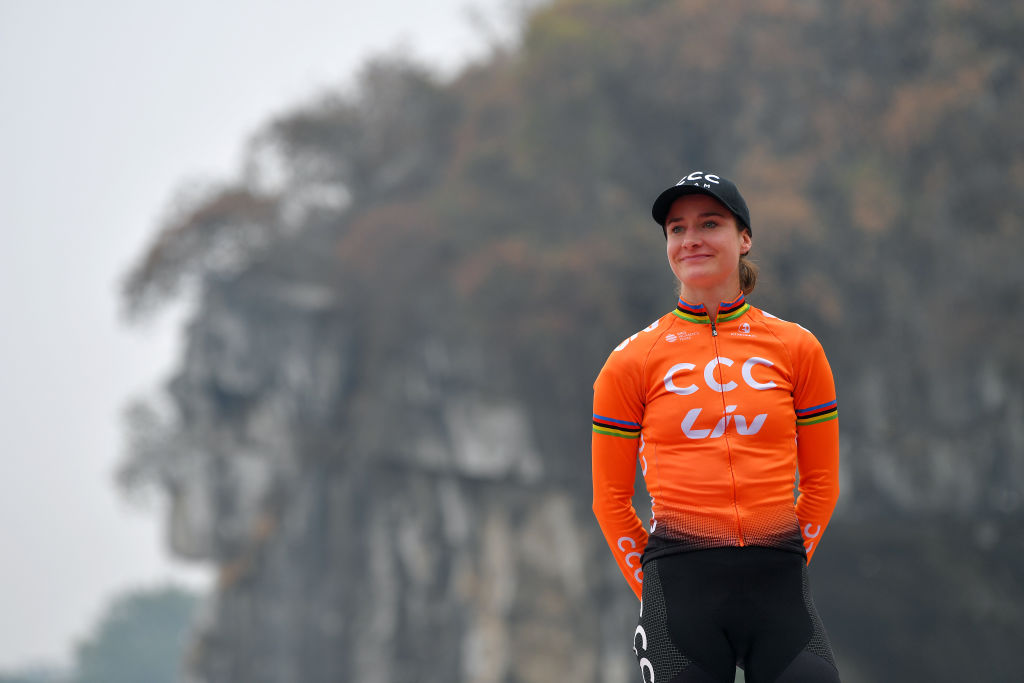
Restructuring the women's calendar
The arguments for and against a women's Tour de France that would run simultaneously with the men's race are well-documented. Logistics and budget remain two problematic considerations, not just pertaining to the race itself. For example, some women's pro teams already struggle to afford to travel to far-flung races on the existing calendar.
It can be fairly argued that a revision of the women's calendar, over a women's Tour de France, would be more beneficial to a sport that, in the Giro d'Italia, has a 10-stage race that is already established, successful, and revered but, somewhat ridiculously, overlaps with the Tour in July.
Vos sees the argument from all sides.
"In 2013 we came together and in 2014 we had the first La Course. That took off and from that moment there would have been an opportunity to grow La Course as a longer stage race. Until now, that hasn't happened but the Giro is such a beautiful race, such a good race, it has all the potential, the only thing is the calendar clash," she says.
"It's always been there [during the Tour de France]. It's a good place in the [women's] calendar, if you look to the season, but media-wise it's terrible. It's OK for Italy because they do a pretty good job with [broadcaster] Rai, so they do the Tour and then the recap. In Italy it's quite good but for the rest of the world it's really difficult to get the images out.
"Obviously, if you look to other sports, like tennis, athletics, and swimming, it's all combined events and you have the men and women doing their events at the same time so people know what they're looking at," Vos continues.
"It's hard to say the women are racing somewhere in Italy and we're having the Tour de France in France and all the media is there. I think it's a logistical problem and the solution would be to alter the calendar, or indeed to have a somewhat longer extension of La Course with the opportunity to match them together."
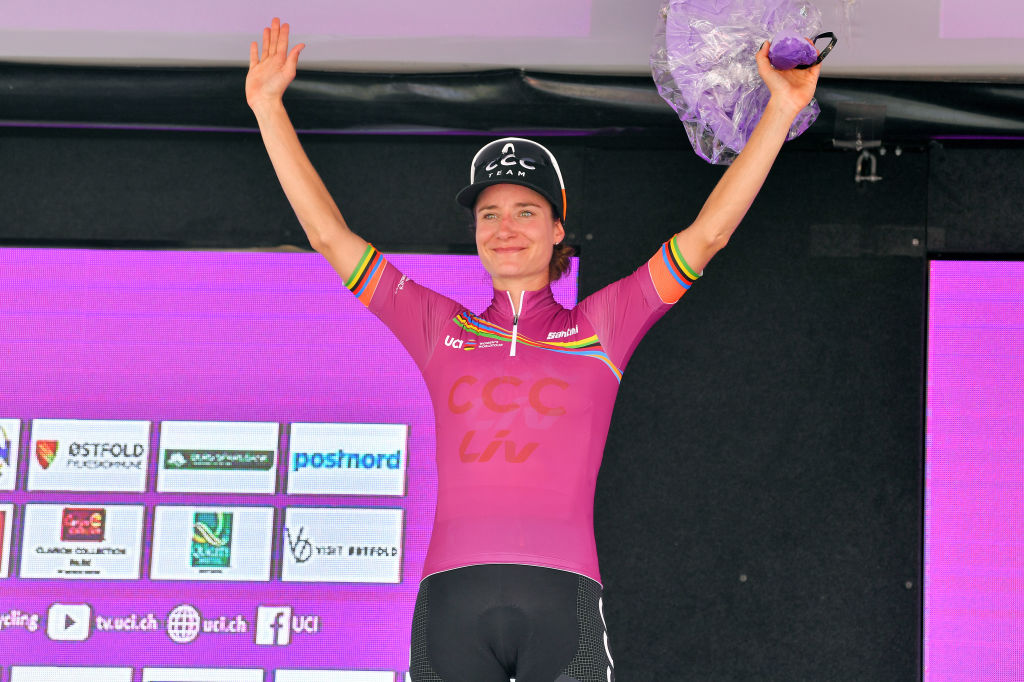
Olympics and another world title
In 2020, Vos is eyeing a start with the Netherlands at the Tokyo Olympic Games, in either a protected or support role, and the Giro may comprise part of her preparations for that.
"It's an Olympic year so that's the biggest goal for now, to try and make it to the Olympics," she says.
"It would be my fourth in a row so that will be fantastic but, of course, as a cyclist and athlete you want to be performing well and there to really do something, so that's the main goal. I'm not really looking far further ahead."
Passion was Vos' chief motivator in a dogged return to the top but there is one thing the three-time road world champion wants before she calls times on her career: another rainbow jersey.
"I would love to. I'm trying to go for one more world championship - that's the thing that really motivates me. I always like to be focused on one race and thrive on that goal," she says.
"After over-training, to get this feeling, when everything comes together, it doesn't really matter for me if it's a world championship or Olympic Games or a smaller crit, I just love this feeling when everything works. You have the training done, you're well prepared and you can do what you plan to do."
